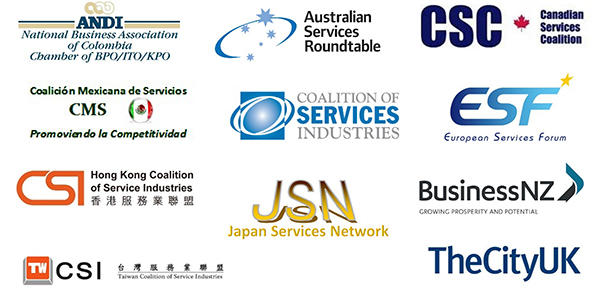
October 17, 2018
The setting up of the multilateral system has been the cornerstone of the development of the world economy in the 20th and 21st centuries. The worldwide acceptance of the rule of law and the disciplines of the multilateral trading system has created a framework for countries to take commitments with respect to their trading partners in exchange for mutually agreed access to each other's markets. This has provided a transparent and stable foundation for commercial transactions around the globe. It has allowed the prevention of major conflicts between nations and has enabled developed and developing economies alike to thrive, lifting millions out of poverty, creating jobs, and fostering innovation and growth.
While the multilateral trading system is typically thought of in terms of goods and agricultural trade, it is actually even more important as a bedrock of growth in international trade in services. With the conclusion of the General Agreement on Trade in Services (GATS) in 1994, the multilateral trading system paved the way for the global services sector to provide the vast majority of wealth-creation across G20 countries' economies, accounting on average for 80 percent of Gross Domestic Product (GDP) and as much as 50 percent of total gross exports, as measured in terms of value-added. Services generate more than 60 percent of jobs in developed economies and nearly 50 percent in developing countries.
Services growth has not occurred in a silo - it underpins the growth and increasing competitiveness of the manufacturing and agricultural sectors as well. Services account for 25 to 49 percent of the input in manufacturing (with this share increasing dramatically in advanced manufacturing) and as much as 60 percent of the jobs in the manufacturing sector on and off the factory floor. Services also play a critical role in facilitating agriculture, from financing and insurance to distribution and logistics. The importance of services to manufacturing and agriculture has been further intensified by the rise of digital technology: digitally-enabled services are producing great leaps in manufacturing and agricultural productivity and competitiveness.
The multilateral trading system does not always function perfectly and the World Trade Organization (WTO) and its rules should be updated to reflect that. This should include strong and effective disciplines on data flows, prohibition of data localization, and a permanent moratorium on e-commerce duties to meet 21st century trade challenges. At the same time, it is critically important that this global framework is maintained, and that it continues to provide a means of resolving conflicts between trading partners. Bilateral and regional trade agreements are recognized by the WTO, allowing parties to go even further in their exchanges, while reaffirming their commitment to respect their multilateral obligations.
The global economy relies on sophisticated global value chains in which trade in manufactured goods, agricultural products, and services are deeply intertwined. The GSC expresses its strong support for the WTO and the multilateral rules-based trading system, which needs to evolve to update the rules of world trade from yesterday to a rulebook for the 21st century. Businesses, local and foreign, in all sectors need to be able to compete in a non-discriminatory global environment. The WTO is critical to achieving this objective.

